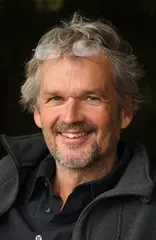The Alchemy Network, founded in December 2016, has set itself the goal of promoting exchange between historians and natural scientists on the reconstruction of alchemical processes in the early modern period, organising events on the topic and initiating joint projects. Guidelines for alchemy processes from the early modern period will be analysed and the extent to which these processes can be tangibly implemented in the laboratory will be investigated. The problems and opportunities of such a reconstruction will be discussed.
The key questions are:
How do we recognise discontinuities in alchemical texts? Do the discontinuities reveal the point at which practicality is abandoned to make way for theory and speculation?
What criteria were used to purchase formulas? Do these criteria change over time?
In alchemical reactions, phenomena are often described that are not observed when working under today's conditions (pure substances, stoichiometrically calculated input quantities, temperatures kept constant, etc.) or are considered insignificant by a modern-day experimenter. Assuming, however, that these were real observations, experimental confirmation will be sought in order to achieve a deeper understanding of the process.
According to which criteria did an alchemist judge the success of an experiment or the production of a substance?
Members
- Dr Gerhard Görmar (Leipzig)
- Dr Alexander Kraft (Berlin)
- Assoc. Professor Dr Hartmut Kutzke (Oslo)
- Dr Sarah Lang (Graz)
- Dr Thomas Moenius (Inzlingen)
- Professor Dr Lawrence Principe (Baltimore)
- Dr Berit Wagner (Frankfurt)
- Claudia Weiß (Halle)
- Dr Rainer Werthmann (Kassel)
- Dr Christian-Heinrich Wunderlich (Halle)
- Professor Dr Holger Zaunstöck (Halle)
Activities
Previous events (selection)
- 11th meeting of the "Netzwerk Alchemie", Alchemie zwischen Bibliothek und Labor, in: H-Soz-Kult, 14/10/2024.
- 8th meeting of the "Netzwerk Alchemie", conference report in: H-Soz-Kult, 01.09.2022.
- 9th meeting of the "Network Alchemy", conference report in: H-Soz-Kult, 30/03/2023.
- 10th meeting of the "Netzwerk Alchemie", Alchemy between experiment and speculation, conference report in: H-Soz-Kult, 11.01.2024.
Upcoming events
- Under the title "Alchemy research in the laboratory and library", the Alchemy Network is organising another workshop at the Gotha Research Centre on Monday, 14 October 2024. The event will provide a forum for the exchange of different approaches to scientific alchemy research. If you are interested, please contact Dr Thomas Moenius.
Cooperations
- Francke Foundations in Halle
- Institute of Art History at Goethe University Frankfurt am Main together with the Johann Christian Senckenberg University Library
- Saxony-Anhalt State Office for the Preservation of Monuments, Halle
- State Museum of Prehistory, Halle
![[Translate to English:] Abbildung: Theosophie & Alchemie, 1678, Kupferstich auf Papier, 7 x 9,6 cm, Deutsche Fotothek (Inv.-Nr. df_tg_0007146), via Wikimedia Commons](/fileadmin/_processed_/c/b/csm_csm_Fotothek_df_tg_0007146_Theosophie___Alchemie__Homepage__af7e0ff6cc_709445b55b.webp)


![[Translate to English:] Abbildung: Theosophie & Alchemie, 1678, Kupferstich auf Papier, 7 x 9,6 cm, Deutsche Fotothek (Inv.-Nr. df_tg_0007146), via Wikimedia Commons](https://www.uni-erfurt.de/fileadmin/_processed_/c/b/csm_csm_Fotothek_df_tg_0007146_Theosophie___Alchemie__Homepage__af7e0ff6cc_accf2a6e2a.webp)